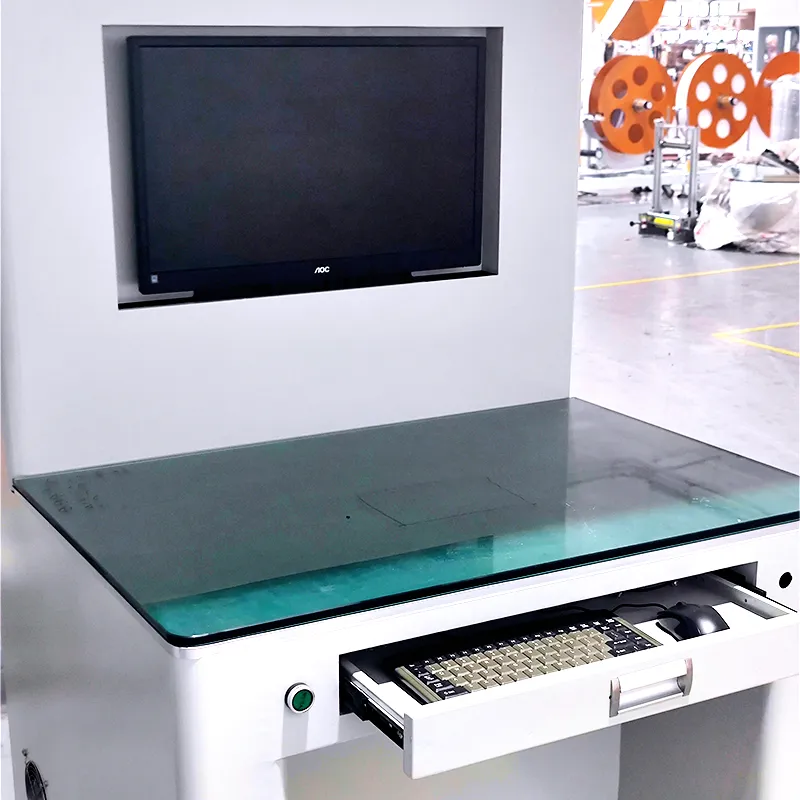In the ever-evolving world of battery production, precision and quality control are paramount. One of the key technologies used to ensure these standards are met is the CCD inspection system. But what exactly is a CCD inspection system, and how does it play a critical role in battery manufacturing? In this article, we’ll explore the importance of CCD inspection in battery production and its various applications in modern manufacturing processes.

What Is a CCD Inspection System?
A Charge-Coupled Device (CCD) inspection system is a high-resolution imaging technology that uses light sensors to capture detailed images of the surfaces of objects. The CCD sensor works by converting light into electrical signals, which are then processed to produce high-quality images. This technology is widely used in a variety of industries, including electronics, automotive, and manufacturing, to inspect and verify product quality.
In the context of battery production, CCD inspection systems are primarily employed to detect defects, measure dimensions, and ensure that components are aligned correctly. This is especially crucial in the production of battery cells and packs, where even the slightest imperfection can lead to performance issues or safety concerns.
How Does a CCD Inspection System Work?
CCD inspection systems operate by using a camera equipped with CCD sensors to capture detailed images of the object being inspected. The system typically consists of the following components:
CCD Camera: The core of the system, capturing high-resolution images.
Lighting: Specialized lighting (such as LED lights) is used to illuminate the object in a way that enhances the detection of defects.
Processing Unit: The captured images are sent to a processing unit, which uses software to analyze the images and compare them to predefined standards.
Feedback Mechanism: If a defect or deviation is detected, the system sends feedback to the production line, prompting corrective actions.
This real-time inspection allows manufacturers to quickly identify and address potential issues, improving both efficiency and product quality.
Applications of CCD Inspection in Battery Production
CCD inspection systems are used throughout the battery manufacturing process, from the initial assembly of cells to the final testing of battery packs. Here are some key applications:
1. Inspection of Battery Electrodes
During the production of lithium-ion batteries, the electrodes are critical components. A CCD inspection system can be used to check the size, shape, and position of the electrodes, ensuring they meet the precise specifications needed for optimal battery performance.
2. Detection of Surface Defects
CCD systems are particularly effective at identifying surface defects such as scratches, dents, or impurities on the battery casing. These defects, if left unnoticed, can compromise the safety and functionality of the battery. A high-resolution CCD inspection system can detect even the smallest imperfections, preventing faulty batteries from reaching the market.
3. Alignment and Positioning of Components
In battery pack assembly, the correct alignment of components such as electrodes, connectors, and insulators is crucial. CCD inspection systems can verify that all components are in the right position and orientation, ensuring the integrity and performance of the final battery pack.
4. Measuring Battery Dimensions
Battery packs and cells need to adhere to strict dimensional tolerances to fit into their designated spaces within devices such as electric vehicles, smartphones, or energy storage systems. CCD inspection systems are capable of accurately measuring the dimensions of these components to ensure they meet industry standards.
5. Quality Control in Final Testing
Before a battery is shipped to customers or integrated into products, it undergoes final testing. A CCD inspection system can be used to verify the overall quality of the finished product, detecting any flaws that might have been overlooked during earlier stages of production.
Benefits of Using CCD Inspection in Battery Production
The integration of a CCD inspection system in battery manufacturing brings several key advantages:
Improved Accuracy: With high-resolution imaging, CCD systems detect even the smallest defects or misalignments that might be missed by human inspectors.
Enhanced Efficiency: Automated inspection speeds up the production process, reducing the need for manual checks and minimizing errors.
Cost Savings: By identifying defects early in the process, manufacturers can reduce the likelihood of expensive product recalls or failures in the field.
Consistency: CCD systems provide consistent, repeatable results, ensuring that each battery produced meets the same high-quality standards.
Real-time Feedback: The system provides immediate feedback to the production line, allowing for quick corrective actions and minimizing downtime.
Why CCD Inspection Is Crucial for Battery Manufacturers
As the demand for high-quality, reliable batteries increases, particularly for applications like electric vehicles and renewable energy storage, ensuring the highest standards of production becomes even more critical. A CCD inspection system is an invaluable tool for battery manufacturers, helping them maintain stringent quality control throughout the production process. With its ability to detect and correct issues early on, CCD inspection enhances product quality, ensures safety, and supports the overall efficiency of the manufacturing process.
Conclusion
In summary, a CCD inspection system is a crucial tool in modern battery production, providing manufacturers with the ability to inspect and verify the quality of components with precision and speed. By detecting defects, measuring dimensions, and ensuring proper alignment, CCD inspection systems help maintain the high standards required for safe and efficient battery operation. As battery technology continues to evolve, CCD inspection systems will remain an essential part of the production process, enabling manufacturers to meet the growing demand for reliable, high-performance batteries.



